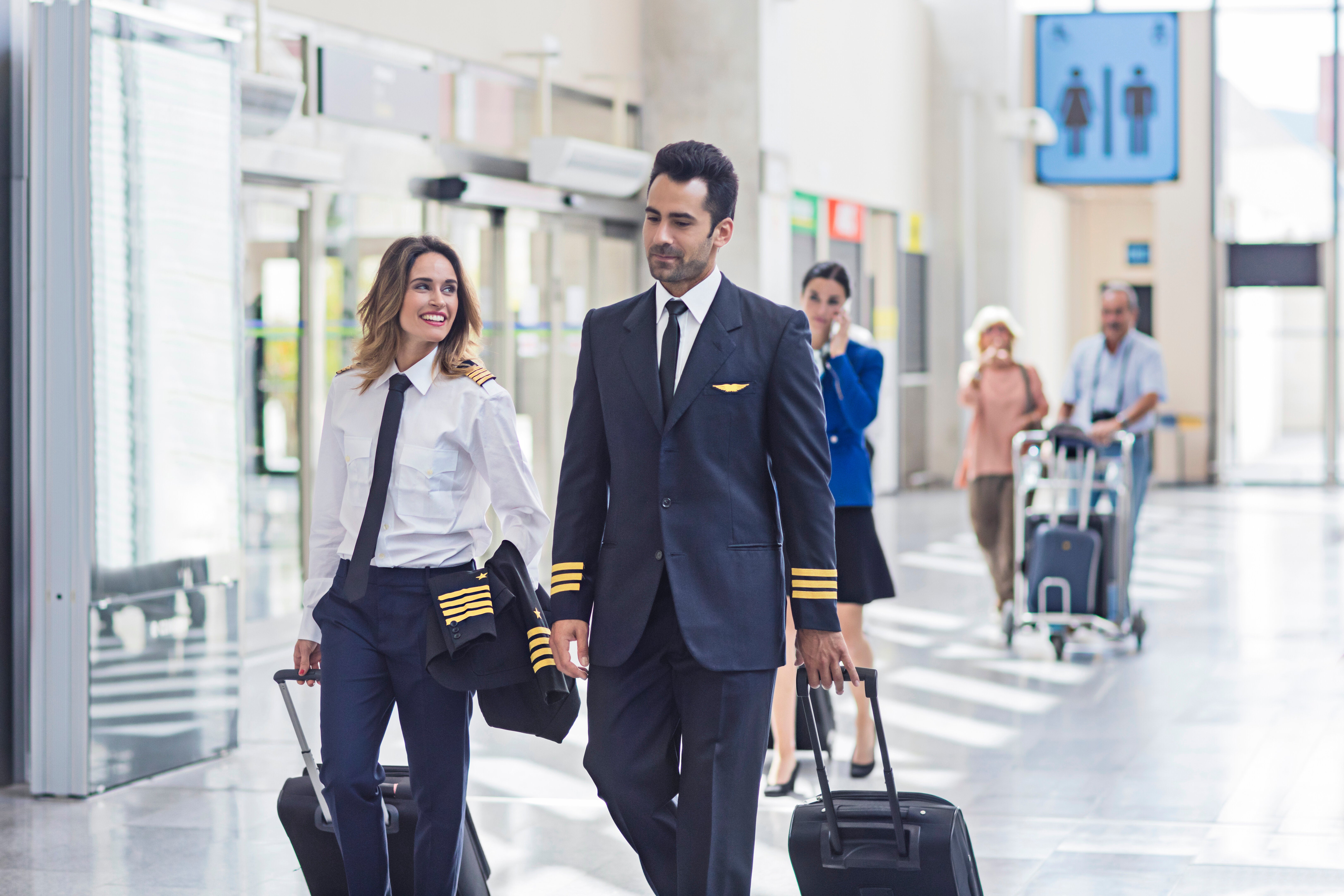Pilots Reveal The 8 Things They Never Do As Air Passengers

When airline pilots travel as passengers, they bring a unique perspective from the cockpit to the cabin. And their fellow travelers could learn a thing or two about what not to do.
HuffPost asked pilots what behaviors they always avoid when they fly as passengers.
Don’t leave your shoes off when you go to the bathroom.
“Many passengers understandably take their shoes off when seated for comfort during the flight, but I always make sure to wear shoes when using the bathroom,” Stefán Dór Arnarsson, a pilot at the Icelandic airline PLAY, told HuffPost.
Advertisement
The idea of getting urine or other bodily fluid on your feet is enough to deter most passengers, but clearly, some are still inclined to go to the lavatory shoeless ― and even sockless.
“I’d never go to the bathroom barefoot,” said Michelle Gooris, a charter airline pilot who blogs under the name Dutch Pilot Girl. “How crazy is that?”
Advertisement
Don’t stand up before the plane is at the gate.
“I’d never stand up in the aisle when the plane is not at the gate yet and the fasten seatbelt is still on,” Gooris said. “Even-though this seems common sense, you’d be surprised how many times passengers do stand up before the aircraft arrives at the gate.”
Advertisement
Not only is it illegal to unbuckle while the light is still on, but it can be dangerous, she said.
Pilots sometimes need to hit the brakes suddenly, Gooris said, such as when the plane’s docking system tells the pilot to wait. “You can imagine when people would be standing in the aisle, they’d have a high chance of getting injured.”
She similarly noted that she’d never stand up in the aisle during the deplaning process before it’s her row’s turn.
Don’t board without a beverage.
“I always stop at the market or anywhere that sells bottled water and take my own onboard,” said Jeanie Carter, a pilot for the private aviation company Wheels Up.
Advertisement
“On commercial flights, I’ve found there are times when the flight attendants are unable to serve any refreshments due to either a very short flight or reported turbulence,” Carter said, “which would make it unsafe for the flight attendants to have the carts in the aisles.”
To avoid getting thirsty in these unexpected situations, buy a beverage or load up in your refillable water bottle at the airport before boarding.
Don’t panic about turbulence.
“Turbulence is an annoyance for most, but the airplane will not fall out of the sky,” Carter said. “And it’s typically not dangerous at all as long as you follow the flight crew instructions ― stay seated and wear your seatbelt when asked to do so.”
Advertisement
Although turbulence can feel very scary, she recommended reframing how you think of it to calm yourself during particularly bumpy moments.
“I liken turbulence to riding in a boat,” Carter said. “In the boat you can see the waves as you are bouncing along. Air is a fluid just like water, but in the air you are unable to see the ‘waves.’ It’s perfectly safe and the airplane can handle it.”
Don’t put both bags in the overhead bin.
“Early in my career, on commercial flights I tossed both bags in the overhead bin and thought nothing more of it, until one of the last passengers to board looked so dejected when there was no room for his suitcase in overhead,” Carter said.
Advertisement
Indeed, many passengers flout airline rules limiting the carry-on luggage allotment to one bag for the overhead bin and one personal item to go under the seat in front of you.
“Since that day, I now always keep that backpack under the seat in front of me,” Carter added. “If everyone would do that one small thing, it would make travel so much easier for everyone.”
Don’t keep the window shade closed during takeoff and landing.
“I never keep the window shade closed for takeoff or landing,” said pilot and blogger Mindy Lindheim. “Not only does it give the best views to appreciate, but it also allows passengers to be an extra set of eyes! The pilots cannot see much of the wings from the cockpit, so a passenger could be the first to see something abnormal and notify flight crew.”
Advertisement
Still, she emphasized that air travel remains safer than many travelers fear.
“We pilots prepare for the worst, but it is uncommon to encounter,” Lindheim said. “The drive to the airport is much more dangerous than the flight.”
Don’t board before getting organized.
“From a pilot’s perspective, I want the boarding process to be as seamless as possible,” Arnarsson said. “Before boarding begins, I arrange my belongings to minimize my time getting to my seat. I take everything out of my overhead bin bag that I want to have with me in my seat during the flight.”
It only takes a few minutes to take stock of your belongings and ensure important items are where they need to be. Thus, you can easily cut down on time spent blocking the aisle and slowing others down.
Advertisement
Don’t forget to thank the flight crew.
New health concerns spurred by the COVID-19 pandemic and passenger rage have made flight crew members’ jobs riskier. In a tough work climate, acknowledging the work they do goes a long way.
“As I’m deplaning, I always say thank you to the flight crew,” Carter said. “I try to make it personal and thank them for getting me to my destination on time or safely. Even if the flight is delayed or there was bad weather that the crew dealt with, I always say thank you.”

Comments are closed.